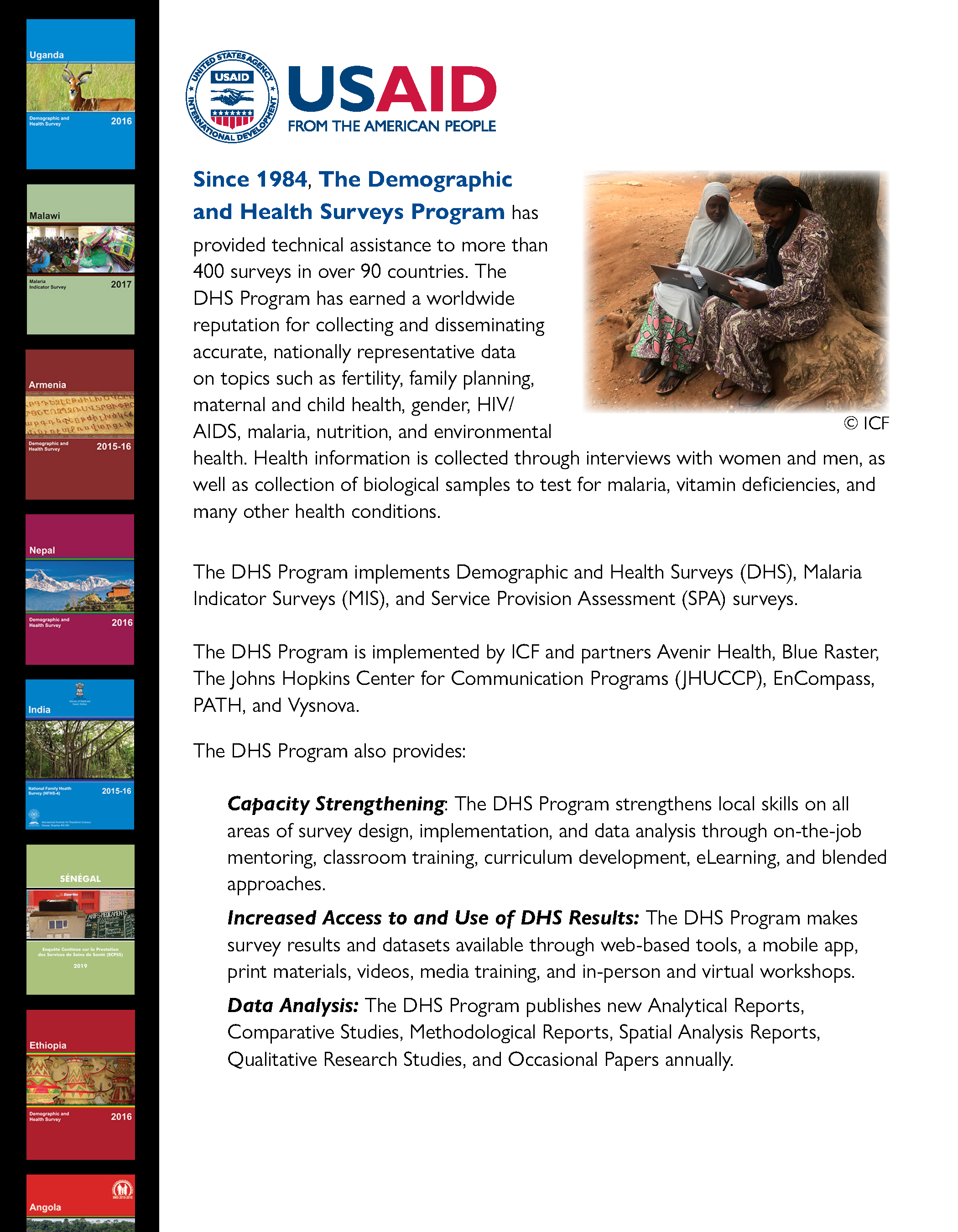Press Releases
New report finds HIV risk remains high in Sub-Saharan Africa despite improvements
Calverton, MD - A new MEASURE DHS Comparative Report finds persistent high levels of sexual risk-taking, low levels of condom use, and inadequate coverage of voluntary counseling and testing in sub-Saharan Africa. The report highlights large differentials between women and men and wide variations among countries in many attitudes and behaviors concerning HIV.
Recent Changes in HIV-Related Knowledge and Behaviors in Sub-Saharan Africa, published by ICF Macro, summarizes levels and recent changes in 69 indicators of HIV-related knowledge, attitudes, and behaviors of women and men age 15-49 in 23 sub-Saharan countries. Data come from the two most recent rounds of population-based, nationally representative Demographic and Health Surveys.
Overall, condom use has increased somewhat in recent years, but remains very low. In most of the sub-Saharan countries surveyed, less than 25 percent of men and less than 10 percent of women report using a condom at last sex in the year before the survey, and even fewer report using condoms consistently.
Although the percentage of respondents who know where to get tested for HIV is substantial in many countries in east Africa and southern Africa, the percentage who have ever been tested for HIV and received test results is quite low in most countries studied, at below 25 percent. For countries with data from both the earlier and more recent surveys, sizeable increases in the knowledge of where to get tested for HIV have occurred among both women and men.
Many people, especially men, say that they are at no risk or low risk of HIV infection, even though they have had multiple lifetime sexual partners. Men are much more likely than women to report multiple sexual partners in their lifetime, as well as in the year before the survey. Men are also much more likely than women to report non-spousal sex. In recent years, the percentage of women reporting multiple partnerships has remained stable or declined slightly in most sub-Saharan countries, but the percentage of men reporting multiple partnerships has remained high or has increased in several countries, especially in west Africa.
In most of the countries studied, knowledge about HIV prevention methods has increased in recent years, comparing the most recent surveys with the earlier surveys. However, many men and women still lack knowledge of specific prevention methods, including condom use, faithfulness to an uninfected partner, and abstinence.
Many respondents continue to have discriminatory attitudes toward people living with HIV. While the majority of adults interviewed say that they would care for an infected family member, only a minority would want others to know if someone in their own family were infected.
An overwhelming majority of adults agree that children age 12-14 should be taught to abstain from sex until they get married. In most countries, however, only about half of women and a slightly higher percentage of men say they would want children age 12-14 to be taught about condom use.
The report calls for strengthening HIV prevention programs in sub-Saharan Africa to provide a range of efforts focused on promoting safer sexual behavior. Also, reflecting the wide differences across countries and between women and men, the report suggests a need for policies and programs that are context-specific and gender-sensitive in their approach to HIV prevention, treatment, and care.
The Demographic and Health Surveys are funded by the United States Agency for International Development through the MEASURE DHS project, part of ICF Macro.
